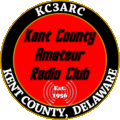Getting Started
Ham radio is well known for its role in emergencies. When our fragile cellular networks and power grids fail, amateur radio keeps on running. This reliability is one of the reasons the hobby has remained so important for more than a century. During hurricanes, winter storms, widespread outages, or any event that disrupts normal communication, amateur radio operators can pass messages, relay information, and help keep communities connected.
Across the country, trained volunteers step in when needed. Groups such as the Amateur Radio Emergency Service and local emergency communication teams work with public safety agencies, shelters, hospitals, and relief organizations. These operators use their equipment and skills to coordinate aid, report conditions, and support response efforts when other systems are overloaded or unavailable.
Even in smaller local incidents, amateur radio fills the gaps. Whether it is assisting with search and rescue, supporting community events, or providing backup communication for local agencies, ham radio operators play a quiet but essential role in keeping information moving when it matters most.
The Basics of Ham Radio
For anyone interested in wireless technology that does not involve a cell phone, ham radio offers a solid introduction to basic electronics theory and radio communication skills.
If you are ready to get started with the hobby, listening is a great first step, but eventually you will want to pick up a microphone and make real contacts with people hundreds or even thousands of miles away. To do that legally, you will need a license issued by the FCC.
Ham radio exams cover electronics theory, operating practices, and the rules and regulations that keep the amateur bands running smoothly. There are three license levels available:
Technician
The entry‑level license. The exam has 35 questions and covers basic regulations, safety, and introductory electronics. A Technician license gives you access to VHF, UHF, and some limited HF privileges.
General
The General license includes all Technician privileges plus access to the HF bands, allowing long‑distance communication around the world.
Extra
The highest level of amateur licensing. The Extra exam contains 50 questions, drawn from a 602‑question pool effective July 1, 2024 through June 30, 2028. Passing earns full privileges on all amateur bands, including exclusive sub‑bands reserved for Extra‑class operators.
ARRL – Amateur Radio Relay League
Click to enlarge US Amateur Radio Bands
Some frequencies of radio waves are affected by the earth’s Ionosphere layers differently.
ARRL Exam Review for Ham Radio
Use this review and practice exam resource with the current editions of ARRL License Manuals
Free ham radio flash cards, practice tests, and question pools as well as introduction to ham radio and explanations for question
The QRZ Practice Tests for amateur radio exams are free and open to the public. No previous or existing amateur license is required to participate
What does ’73’ mean and why do ham radio operators say it? – View Article
Ready to take the Technician, General, or Extra exam?
Click here to view local license testing sessions.
VE – Volunteer Examiners are US licensed Radio Amateurs holding a General Class license or higher, who offer their time to administer the FCC licensing exams through a FCC authorized Volunteer Examiner Coordinator (VEC) organization.



